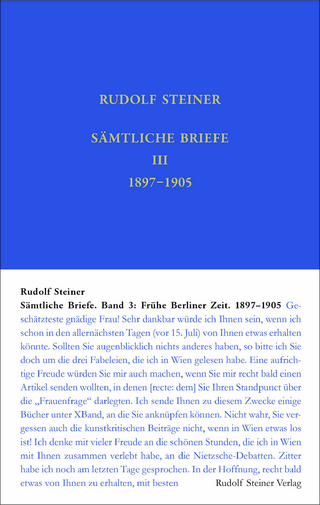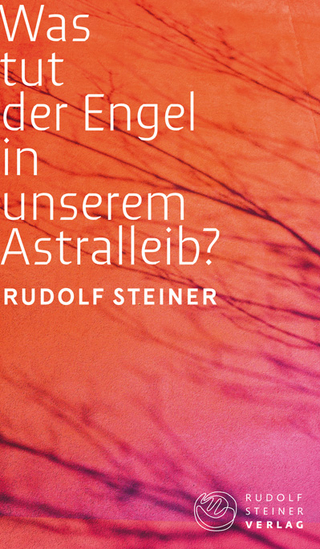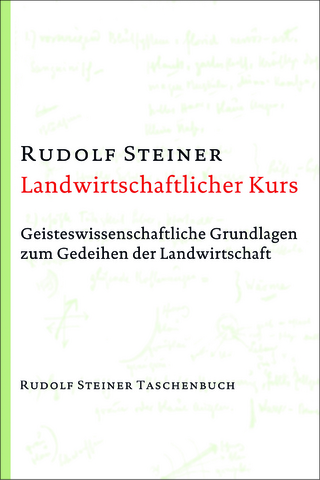
Michael's Mission
Rudolf Steiner Press (Verlag)
978-1-85584-517-6 (ISBN)
Rudolf Steiner describes how humanity faces three dangers in the social sphere: spiritual life could flow into the 'pit of mendacity' ruled by Ahriman, individual rights might descend into the 'pit of selfishness' (Lucifer), and economics into cultural sickness and death (Asuras). In order to prevent European-American culture from perishing, it will be necessary to turn towards contemporary 'threefold' social ideas. Steiner also speaks about the principle of metamorphosis in connection with evolution and devolution, as evident in the design of the pillars in the newly-built Goetheanum. Architectural styles are an expression of human evolution, as can be seen in Greek temples, gothic Cathedrals, the Grail temple and the building at Dornach. Amidst many other themes, Rudolf Steiner addresses the problem of natural necessity and freedom, and the abolition of the trichotomy of body, soul and spirit at the Council of Constantinople in AD 869.
Rudolf Steiner (1861-1925) called his spiritual philosophy 'anthroposophy', meaning 'wisdom of the human being'. As a highly developed seer, he based his work on direct knowledge and perception of spiritual dimensions. He initiated a modern and universal 'science of spirit', accessible to anyone willing to exercise clear and unprejudiced thinking. From his spiritual investigations Steiner provided suggestions for the renewal of many activities, including education (both general and special), agriculture, medicine, economics, architecture, science, philosophy, religion and the arts. Today there are thousands of schools, clinics, farms and other organizations involved in practical work based on his principles. His many published works feature his research into the spiritual nature of the human being, the evolution of the world and humanity, and methods of personal development. Steiner wrote some 30 books and delivered over 6000 lectures across Europe. In 1924 he founded the General Anthroposophical Society, which today has branches throughout the world.
| Erscheinungsdatum | 22.11.2015 |
|---|---|
| Reihe/Serie | Collected Works |
| Verlagsort | East Sussex |
| Sprache | englisch |
| Maße | 155 x 235 mm |
| Themenwelt | Weitere Fachgebiete ► Anthroposophie |
| ISBN-10 | 1-85584-517-2 / 1855845172 |
| ISBN-13 | 978-1-85584-517-6 / 9781855845176 |
| Zustand | Neuware |
| Informationen gemäß Produktsicherheitsverordnung (GPSR) | |
| Haben Sie eine Frage zum Produkt? |
aus dem Bereich


